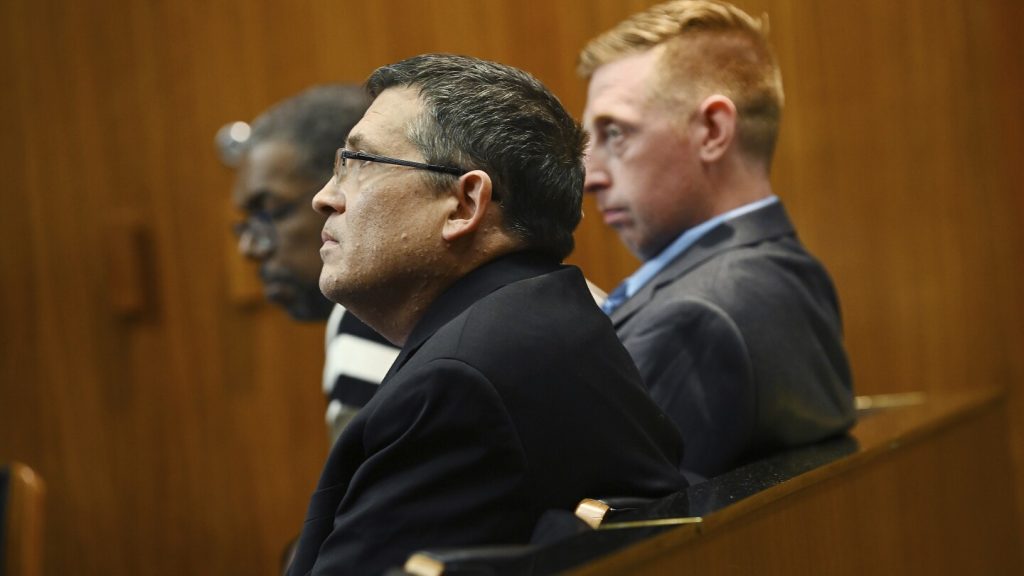Two experts gave conflicting opinions about the death of McKenzie Cochran, who died after being pinned to the floor by security guards at a Detroit-area mall in 2014. The Oakland County medical examiner defended the official conclusion that Cochran’s death was an accident, while another forensic pathologist suggested that the manner of death should be considered “indeterminate” or possibly a homicide. Cochran, who had an enlarged heart, repeatedly said, “I can’t breathe,” while being restrained, and ultimately died of asphyxiation.
Three security guards are on trial for involuntary manslaughter in connection with Cochran’s death, more than 10 years after the incident occurred at Northland Center in Southfield. Video footage showed Cochran resisting while being restrained by the guards, who were responding to a call from a mall store about trouble. Dr. Carl Schmidt, a former medical examiner, stated that some people may not be able to breathe adequately while restrained face down on the ground, which can lead to heart failure. He emphasized that Cochran’s death was not an accident.
The death of McKenzie Cochran was initially classified as an accident in 2014, and local prosecutors did not pursue charges against the guards involved. However, State Attorney General Dana Nessel reexamined the case in 2021 after it became an issue in the 2020 race for prosecutor. The guards, John Seiberling, Gaven King, and Aaron Maree, are accused of gross negligence in their handling of the situation at the mall. Dr. L.J. Dragovic, the Oakland County medical examiner, testified that he had no basis to change the original autopsy report, which ruled Cochran’s death as accidental.
Defense lawyers in the case summoned Dr. Dragovic to speak to jurors after the doctor who performed the initial autopsy, Dr. Cheryl Loewe, passed away in 2023. Dragovic criticized the conclusions of the forensic pathologist brought in by the attorney general’s office, calling them “strange.” He questioned the basis for Schmidt’s assertion that Cochran’s death was not accidental and emphasized the need for evidence of intent to classify it as such. The confrontation at the mall began when Cochran was reported as making threats, refused to leave, and ultimately became involved in a physical altercation with the guards.
The conflicts at the mall escalated when Cochran, who had been pepper-sprayed by a guard, resisted restraint and ended up being pinned to the ground by five guards. One of the guards involved in the incident pleaded guilty to involuntary manslaughter the week before the trial. Another guard who led the encounter with Cochran passed away in 2017. The trial and differing opinions from medical experts highlight the complexity of determining the cause of death in cases involving physical restraint. The outcome of the trial will ultimately determine the legal accountability of the security guards in Cochran’s death at the Detroit-area mall.


